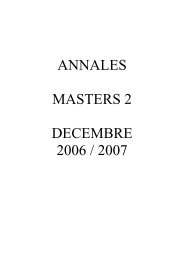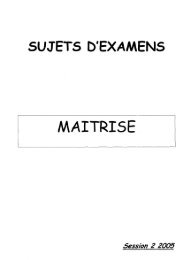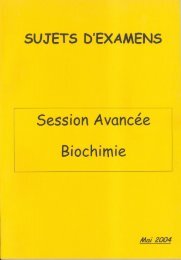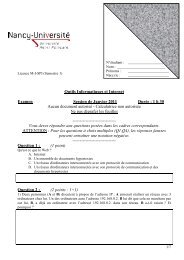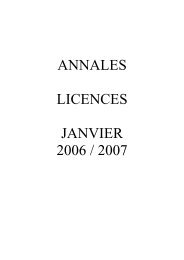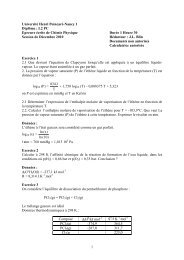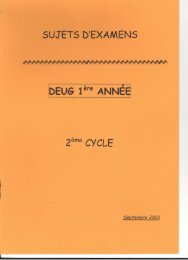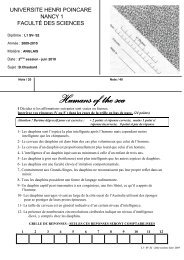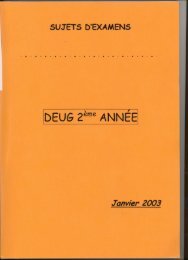Juin 2005
Juin 2005
Juin 2005
Create successful ePaper yourself
Turn your PDF publications into a flip-book with our unique Google optimized e-Paper software.
The Text GenerationSomething strange has happened to the mobile phone. In defiance with ail industryforecast, today's user seems to want to write, not chat. SMS, Short Message Service, has beenaround for a decade, but in recent years it began spreading like a virus through the globe. Lastyear the number ofmessages sent jumped live-times, reaching 15 billion in December alone.Some people estimate the monthIy total may reach 100 billion.The telecom industry adopted SMS as a technology in 1991, just in case somebodysomewhere might find it useful. Text messages arrive almost instantaneously, so that two peoplecan have a text conversation as if they were in an Internet chat room, At fust, people were onIyable to send messages within their own networks.A year or two ago, teenagers and twentysomethings spotted potentiaL Here was anefficient way of communicating that had the powerful charm of novelty. Numbers rose rapidly,especially in the tech-ftiendly countries of the Far East and Scandanavia, where the mobile phoneboom fust took offamong young consumers.Users say the charms of texting go far beyond novelty. The service has alI the immediacyofa phone calI-as weil as extra privacy. "My dad overhears my phone conversations alI the time,but I don't have to worry about that with text messages," says Chika Saito, a high school studentin Japan, who sends about 10 messages a day.Best ofalI, the text habit doesn't even strain modest student budgets. A brief messagewon't usualIy cost more than 15 cents. "It's cheap, it's quick and it's international," says Parisstudent Kiki Deleplace. "1 can send a message anywhere in the world for one franc. Thesebudget rates encourage constant, informal text conversation. Says Daantie DeBersje of theNetherlands: "1 send and receive between 5 and 10 a day, mostly things like 'sleep weil', how's itgoing', or 'see you tomorrow',Users have developed their own high-speed vocabulary, a mix ofalI the available icons,acronyms and phonetic shorthand. For example CUL8R stands for "see you later" and QLstands for "cool". Guides are available for the uninitiated. In Britain, 3 of the top 10 best sellingbooks are English-to-text dictionaries.Sorne European cell phone providers now derive up to 20 percent of revenues from textmessages. Others are luring (attirer) subscribers with package deals that include free messaging.Billboards advertising an SMS deal for France's SFR service read "Ce OrR" (translation: "C'estoffert," or "It's free"). The phone manufactures are also catching up to this trend. TheMotorola Vl01, due for launch in Europe later this year, is little more than a keyboard with anearpiece attached.The runaway success ofJapan's i-mode, the cell-based Internet phones, has a simiIar grassmots quality to it. First introduced two years aga, i-mode was marketed as a way for businessmen to keep track of stock priees or check their e-mails, but the service was extremely popularwith teenagers and young adults, who used it to downIoad games and send e-mails to ftiends."People in Japan use their mobile phones to fill in 'niche time,' waiting for the bus or thecommuter train," says Henry Elkington, a telecom expert.What will customers want from the next generation ofcell phones? Phone companieshave spend $iOObillion on the third-generation technology that will alIow these phones to 'sendand receive vast amounts ofdata. What's the point of this sophisticated technology if customersrealIy just want to send short text messages? Now engineers are scrambling (se bousculer, seprécipiter) to develop so-calIed multimedia messaging services, in which users would send textmessages with photos or video images or sound clips-a sort ofvoice e-mail. OnIy when the thirdgeneration hits the market will they know for sure whether it's GR8 (great) or NAGI (not a goodidea).Consurners' Report 02002



